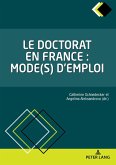Slovak education, including foreign language education, is going through curricular reform. Even though the development of intercultural communicative competences is claimed to be one of the key aims of foreign language teaching, recent research suggests that most teaching time is devoted to the development of grammatical and vocabulary skills, and that it is often difficult to convince English teachers that the teaching of culture ought to be a primary goal. From her own first hand experience of living in foreign countries and through teaching, the author has learned the importance of intercultural competence for communicating successfully in a foreign language with speakers from cultures different to one's own. This study features a qualitative approach to the intercultural dimensions of English language teaching in Slovak primary schools, including observations and interviews, along with analysis of relevant policy and curricular materials.
Bitte wählen Sie Ihr Anliegen aus.
Rechnungen
Retourenschein anfordern
Bestellstatus
Storno








